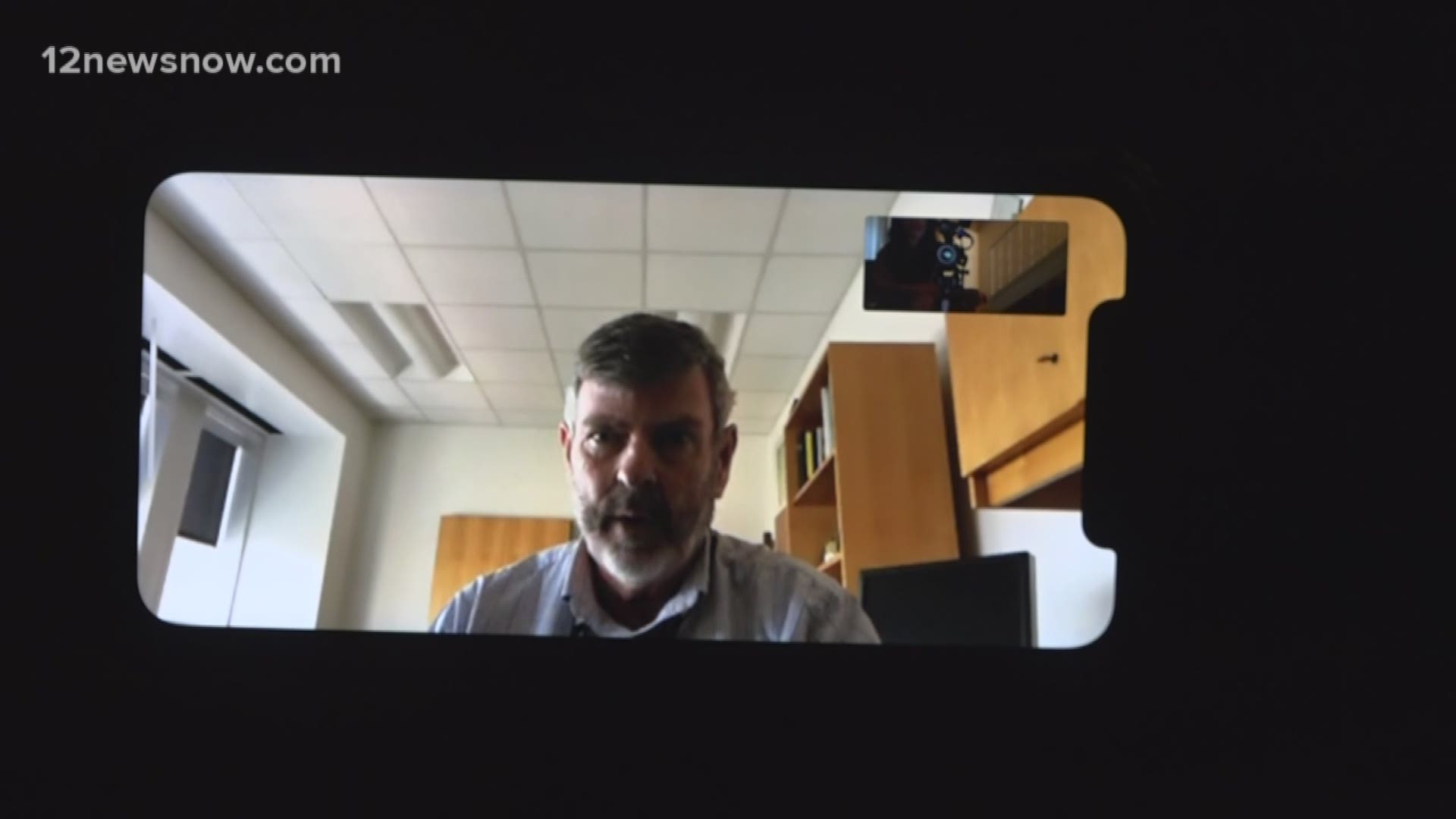BEAUMONT, Texas — As people across the country are taking extra precautions like working from home and practicing social distancing, researchers at UTMB Galveston are learning more about COVID19 every day.
Dr. Scott Weaver is the director at the Institute for Human Infections and immunity at UTMB Galveston. He studies different kinds of emerging viruses.
"I think it sort of combines the worst properties of several other kinds of viruses. So it's kind of the perfect storm for a respiratory virus," Weaver said.
For the last two months, Weaver and his team have been working daily to learn as much as they can about COVID19.
"So we’ve been gearing up research very quickly and we have a wide range of different projects up and running here," Weaver said.
One of those projects involves a mouse strain with a human receptor for all of the coronaviruses.
School Impacts | Business Impacts, Closures | Map of cases | Coronavirus symptoms & prevention | Coronavirus questions answered
"And that makes them susceptible to infection,and they develop disease to what we see in people," Weaver said.
They're hoping to have enough mice to start experimenting within the next month or two. He says those experiments will help answer a lot of their questions.
"For example, why certain types of people with certain risks develop more severe disease than younger people without those risks," Weaver said.
The lab has also been working to develop a vaccine, but Dr. Weaver said that could take another year. They've also learned more about where and how long the virus can live.
"The virus can survive for up to a few days on hard smooth surfaces like plastic or stainless steel, it can survive for a day or so on something like cardboard or paper, and it can only survive for a few hours when it’s suspended in the air in very small droplets," Weaver said.
Tuesday, President Trump said he wants the country back to business by April 12.
"I think that’s very unlikely. I think the more reliable scientific predictions are this outbreak is not gonna peak until at the earliest mid-April, probably later," Weaver said.
He says lifting public health restrictions during the pear will only accelerate it even more.
"So we have to take it very seriously and unfortunately, we have to make a lot of changes that are gonna hurt us economically at least in the short term, but that’s what’s gonna be required to save lives," Weaver said.

